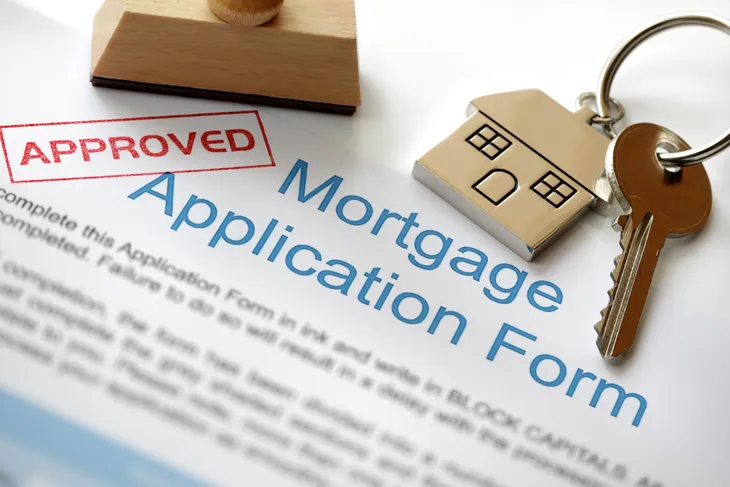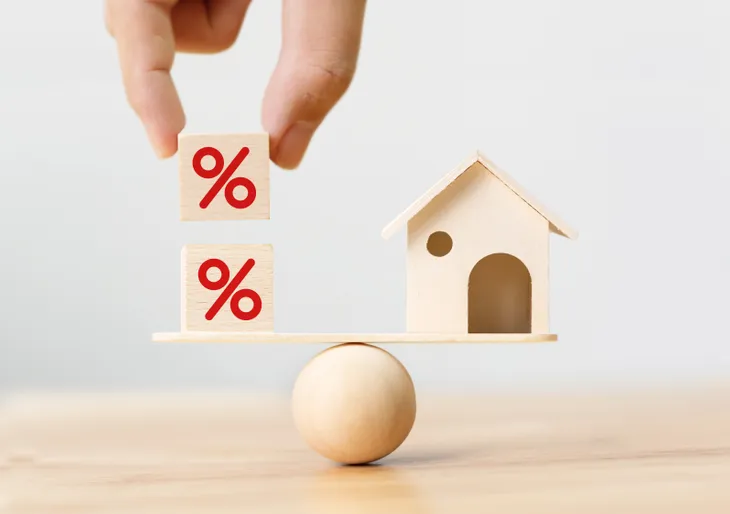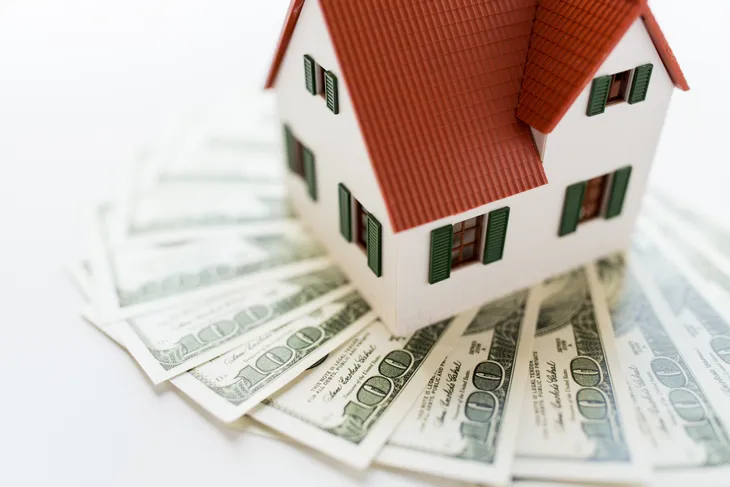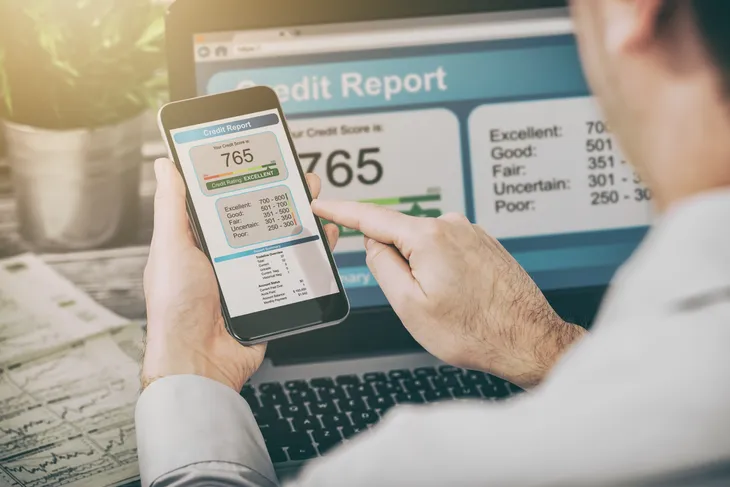If there’s any silver lining in the absolute financial chaos caused by the pandemic, it’s that interest rates have plummeted. In fact, mortgage rates around the country have now dropped below 3%. For a 30-year mortgage, you haven’t been able to grab a rate that low is almost 50 years. If you’re looking to borrow money right now, those low rates are very attractive. So attractive, in fact, that some home owners are even thinking about refinancing their current mortgage in favor of a lower rate. But is refinancing your mortgage really going to save you money in the long run? Well, it depends.
11. Look At Your Existing Mortgage First
Everyone’s mortgage is different. There are different rates, terms, and closing costs. There may even be penalties for paying your mortgage off early. You’ll need to consider all of these things when looking into refinancing your mortgage. However, if rates continue to drop like they have been, these are questions that are definitely worth asking.
Even still, you shouldn’t just refinance your mortgage because everyone else is telling you that you should. Maybe you already have a super low interest rate. Maybe you only recently signed for your mortgage, and breaking it early would cost you more in penalties than you’d save in interest. Or maybe your mortgage is almost over — so why pay more fees just to save a few bucks over the last few years of your payments? Like most things financial, the right decision depends on your specific circumstances.
 Shutterstock
Shutterstock10. Interest Rate
This is the most obvious question you need to answer. How much of a reduction can you actually get on your mortgage interest rate? If the answer is very small (say, only 0.25% lower), it might not be worth making the change. However, if you can refinance somewhere between 0.5% or 1% lower (or more), then you could end up saving thousands in interest over the life of your mortgage.
Of course, you’ll need to couple the answer to this question with other information to make a truly informed choice. A lower interest rate might not be worth it if you get stuck with high closing costs or other mortgage-related expenses.
9. Closing Costs
Closing costs vary from deal to deal, but you’re unlikely to avoid them altogether. They typically factor to about 2-to-6 percent of the total mortgage cost. So your closing costs for a larger refinance will probably be more than if you’re looking at a lower total amount deal.
Closing costs typically include an application fee, home appraisal, and a few other extra charges. Legal fees may also be lumped into this, if you (or the lender) require the sign-off of a legal professional. Make sure you get a complete and accurate accounting of any closing costs you would have to pay in order to refinance your mortgage. You might discover that you’re not really saving any money at all, by the time you pay them.
8. Escrow
This may or may not apply to you, depending on how your previous mortgage was set up. However, it’s fairly common to pay some extra money every month that your bank holds in escrow. They will then, in turn, use that money to pay the annual property tax on your house. Escrow can also sometimes be used to pay home owners insurance. Depending on the timing of your refinance, you could have a lot of (or very little) money in that account. But it’s important to know which.
If you close your old mortgage, that escrow money will be returned to you in a lump sum. It could be thousands of dollars. That’s helpful to pay things like closing costs. Unfortunately, banks typically hold it for 30 or 60 days.
7. Tax Considerations
However, you need to remember that your property tax still exists. Your new mortgage may require you to fund the escrow account up front — it’s a fairly common demand. The downside if that you’ll probably need the up front money before you get the old escrow amount back. So it’s possible that your closing costs will actually balloon much higher than you originally thought.
One possible solution to this is to refinance your mortgage for a bit more than you actually need. Let’s say you still owe $150,000 on your existing mortgage. If you can refinance (at a lower interest rate and with reasonable closing costs) for $155,000, you can put the extra $5,000 towards your closing costs. Then, when you get that old escrow amount 30 or 60 days later, make a lump sum payment towards the new mortgage.
 Shutterstock
Shutterstock6. Length of Mortgage
Refinancing your mortgage can definitely save you money — either on your monthly payments or in long-term interest charges. Maybe both. But if you’re planning to move again soon — say within a few years — it might not be worth it. You’ll have to pay for new closing costs when you buy your next house — not to mention legal fees, real estate commissions, and moving costs. Plus who knows where interest rates will be in two or three years.
On the other hand, if you’re planning to stay in your current house for several years (or forever), then refinancing your mortgage could save you big over its duration.
5. Should You Go Shorter?
Another option, if you can afford higher payments, is to refinance for fewer years. Turning a 20 year mortgage into a 15 year one will result in higher monthly payments. However, the overall cost of your entire mortgage will go down, since you’ll be paying less interest. You’ll also be mortgage free five years sooner. If you can swing the higher payments, consider investing in your future by refinancing for a shorter duration.
Like we said at the start of this article, it all depends on your specific financial circumstances — and how much you can afford to pay every month. However, refinancing with a shorter mortgage term will save you more money in the long run. However, you may find your monthly budget stretched thin by those higher payments. (Yes, even with a lower interest rate.)
4. Your Own Credit
We get it. All this talk about record-breaking low interest rates can get you excited. It might seem like everyone is taking advantage and saving themselves thousands of dollars. However, one of the single most important things when it comes to mortgage applications is, well, you. More specifically, your creditworthiness.
If you (and your partner, if co-applying) have excellent credit and solid job security, then you’re laughing. You shouldn’t encounter many problems. However, if your credit is less-than-stellar or your job security is a bit shaky — which unfortunately describes a lot of people right now — your options are suddenly less exciting.
You may find yourself unable to qualify for those rock bottom rates. If that’s the case, refinancing might not make sense for you at all, once you factor in the other costs associated. This is a good time to review your credit scores, fix any mistakes in your credit history, or take steps to improve your credit before you attempt to refinance a mortgage.
3. Shop Around
As with anything else you buy (and don’t kid yourself — a mortgage is a financial product you buy), it pays to shop around. Don’t be afraid to get multiple quotes and compare the offers. Every mortgage company will offer you slightly different terms, so analyze them with a wide-angle lens. Those companies offering “no closing costs” might charge a higher interest rate, for example. That ultimately costs you more in interest over the span of your mortgage.
Some lenders may be willing to match interest rates. If they won’t drop below 2.5% and the bank across the street offered you 2.25%, let them know they are about to lose your business. Don’t be afraid to ask them to go lower or match a competing offer. The worse they can say is “no.”
2. Inflation
Whether you’re trying to end up with lower monthly mortgage payments or simply save money in the long run with a shorter mortgage term, refinancing your house will definitely shake up your budget. Whenever you make major changes to your regular expenses (especially a huge expense like your residence), you need to consider the rest of your money too.
To that end, we need to bring up inflation. Here’s a primer article on inflation, but for the purposes of this article you just need to know that inflation raises the costs of everyday items and lowers the buying power of the dollars you make. So think carefully about whether you want to raise your monthly mortgage cost by shortening your term. Or whether you want to be on the hook for an extra five years of mortgage payments by stretching out your existing obligations over a longer period of time. Everything else in your life is going to slowly cost more too, so budget accordingly.
1. The Future
The housing market is, in a single word, crazy. Prices and home valuations are going through the roof is almost every major city in North America. While getting a lower interest rate on a home that almost doubled in value since you bought it can be a great thing, you also need to think about the potential negative outcome too.
If the housing market crashes (again), then plenty of people who refinanced their mortgage to cash-out some equity could end up underwater on their loans.
Here’s an example:
Let’s say you bought your house six or seven years ago for $300,000. These days, you could probably sell it for $750,000. Your original mortgage was for $270,000 (after a 10% down payment). After six years, you still owe roughly $222,000. But you refinance for $400,000, using the extra cash to pay off some debt, buy a much-needed new vehicle, and fund some home renovation projects. That’s all well and good, except if the value of your house crashes back down below $400,000, you owe more than your asset is worth. You never want to be in that situation.
The Last Word
Your mortgage is often the biggest purchase of your life, and the largest investment you have. So there’s no reason to take it lightly. Devote some serious time and energy into crunching the numbers, comparing offers, and shopping around the best refinancing deal you can find. While the overall state of 2020 has many people concerned about their finances, it is possible to take advantage of the current circumstances too. You just have to be smart about it.
 Shutterstock
Shutterstock











